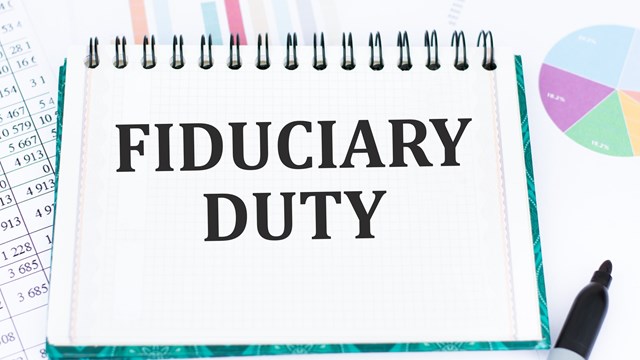When one buys a private single-family home, the homeowner is king or queen of the proverbial castle. When it comes to condominium and cooperative ownership, however, the landscape is more complex. While the shareholder or unit owner rules within the walls of their unit, everything behind the drywall—from the wiring and pipes in the walls to the shared common areas like laundry and fitness rooms, to the exterior elements that hold the building together and protect it from the elements—is governed by the community’s board under the aegis of its governing documents, which contain the rules and regulations of the community and give the board authority over different aspects of how it’s run. Governing documents are themselves regulated by individual state laws and statutes, and at times even local ordinances.
The hybrid nature of ownership presented by condominium and cooperative homes gives many owners and shareholders an incomplete—and often incorrect—understanding of who is responsible for what in their community. This is partly because few purchasers of condominium and cooperative units ever really read the governing documents of the community they’re moving into, and partly because many are coming from a rental environment and wrongly see the association or corporation board as their landlord—which, despite certain similarities, it most certainly is not.
Condos vs. Co-ops: Who’s in Charge Here?
To understand the role and powers of the board, it’s important to understand the difference between condo and co-op ownership versus single-family homeownership, as well as the difference between condos and co-ops themselves.
Single-family homeownership is very simple: You buy a home and the land underneath it. There will be some interface with the local government around things like utilities, property taxes, and basic services such as trash collection, but as the homeowner, you’re in charge of maintaining both the structure you call home and the land upon which it sits. If it snows, you remove the snow from your driveway. If your water pipes freeze and burst, you are responsible for repairing them. It’s your castle—and so are all the responsibilities that come with it.
Between single-family ownership and condo/co-op ownership is the homeowner’s association (HOA). In these communities, residents own their homes (which may be free-standing, or may be attached to others) outright, but handle certain responsibilities collectively. These include things like the maintenance of roads, clubhouses, pools, and other common amenities inside the community’s borders, and, depending on the HOA, may also include utilities, façade maintenance, or landscaping. But generally, like single-family homeowners, HOA members are in charge of their homes, both inside and out.
From HOA membership, the next step is condominium ownership. Like owners of single-family homes and units in HOAs, condo owners own their property outright—but their owned property encompasses only what is within the dividing walls of their units. All other parts of the property, whether in a high-rise, mid-rise, or townhouse setting, are owned and maintained by the condominium association, of which the unit owner is a member. The condominium owner is for the most part free to sell—or even rent out—their unit without much interference from the association board, which governs the association as a group.
Co-op ownership is significantly more restrictive. Co-op owners don’t own their apartments in the sense of having a deed to a piece of real property. They own shares in a cooperative corporation that owns the building in which their apartment is located, and are issued a proprietary lease for their unit by that corporation. They can sell those shares and transfer the lease—but only to a buyer approved by the board—and most boards flatly forbid renting or subletting units, though there are some exceptions.
Why the Differences?
Co-ops and condos are both common-interest communities, but their governing documents have inherently different legal mechanisms that determine how they function, says Wendell A. Smith, a partner at the law firm of Greenbaum, Rowe, Smith & Davis, LLP, in Woodbridge.
“In a co-op, the entity that owns everything is a corporation,” Smith says. “The co-op corporation owns the entire building—the individual apartments and the common elements. Each individual resident has a proprietary lease to his apartment and a share interest in the corporation.”
The number of shares in the co-op is determined at the time of incorporation, and is listed in the co-op’s offering plan. Allocation of shares to individual shareholders is based on an apartment’s square footage and the desirability and location of the apartment within the co-op, says Michael M. Kayam, a partner in Lasser Law Group in New York City.
On the other hand, “in a condo,” says Smith, “the units in which the people live are individually owned, but the common elements are owned jointly. Each unit owner has title to an undivided proportional interest in the common elements.” In an HOA, he continues, “the residents own their individual units, but the association owns the common property—roads, lawns, clubhouse, etc. As an HOA member, each unit owner has a beneficial interest in the common elements, but not a legal title.”
State by State
The laws governing common-interest communities among states in the tristate area are similar, but their regulatory authority and terminology vary. In New Jersey, it’s the Department of Community Affairs (DCA) that has regulatory authority over common-interest communities. Across the river in New York, the state attorney general regulates common-interest communities.
For co-ops in both states, “the nomenclature is the same—certificate of incorporation, proprietary lease, and bylaws,” Smith says. “New Jersey also requires a Master Declaration, which is recorded and establishes the co-op.” In the case of Garden State condos, that document is called a Master Deed.
The ‘Landlord Complex’
A co-op corporation’s operations are controlled by its bylaws. Shareholders in the building meet and elect the directors, who in turn meet and elect officers. In New Jersey, Smith says, a condo is a non-profit corporation with a board of directors. By contrast, says Eliot Zuckerman, a partner with Manhattan-based law firm Smith, Gambrell & Russell, LLP, New York condos are unincorporated associations which operate in many ways like corporations, with bylaws similar to those of a co-op, led by a board of managers. Between the two, “[policies]—things like the maximum amount of financing a board will allow a purchaser to obtain, the maximum duration of a sublet (two out of five years is typical), and alteration policies—are typically easier to impose in a co-op than in a condo,” Zuckerman says.
It’s this part where many owners—in both co-ops and condos alike—have some misconceptions about the extent and limits of what their board is empowered to do. “The biggest misconception condo owners have,” says Ellen Shapiro, a partner in the law firm of Marcus, Errico, Emmer & Brooks (MEEB), located in Braintree, Massachusetts, “is that the board exists to serve the owners individually. The board is not your landlord; the board represents the community as a whole. It represents the organization, not the individual owners—and many owners don’t understand that. This creates a problem when unit owners have (or are given) the impression that they can call management, the board, or even the association’s attorney at any time and speak with them about anything in their interest. The board governs the common elements, not the individual units—although decisions they make may affect individual units. ‘If it happens in my unit, the board has to deal with it,’ is not how it works. The board is not your landlord, or your parent, and it can’t fix your individual problems.”
This misunderstanding tends to be even more prevalent in co-op buildings—which, given how much power co-op boards do actually have over how their buildings are governed, is perhaps understandable—but it’s still incorrect. Co-op owners often go directly from being rental tenants to being co-op shareholders with little understanding of who is responsible for what in their new community. Accustomed to calling the landlord when anything goes wrong in their apartment, they’re often surprised to learn that fixing a leaky faucet, for example, or replacing a ceiling light fixture is now very much their responsibility, and is actually detailed in the proprietary lease they were furnished with upon closing on the apartment. The transition from a tenant mentality to a cooperator mentality may take time, and it is sometimes met with resistance along the way.
“Typically, as a general rule of thumb,” says Julie Schechter, an attorney with the law firm of Armstrong Teasdale in New York City, “shareholders and unit owners are responsible for whatever is within the four walls of their individual unit, and the cooperative or condominium is responsible for everything in the common areas of the property, and any building system that serves more than one apartment. However, there are some gray areas where it is not always obvious who is responsible for the maintenance and repair; for example, HVAC systems, plumbing risers and valves, and windows.”
Read the Fine Print
The pros agree that the best way for a new shareholder or unit owner to educate himself/herself about individual responsibilities is simply to read the governing documents for their building—and if questions arise, ask for clarification from their closing attorney or another qualified legal expert.
Unfortunately, says Shapiro, “more often than not, buyers don’t review these documents. They don’t understand the importance of them, and they often don’t want to pay their attorney to review the documents for them either—but that’s a big mistake. A good example of why would be a purchaser who has a dog, buys an apartment without reading the community’s documents, and winds up in a building with a ‘no pets’ policy.” Now the new homeowner is forced to make a wrenching decision about their pet, or face fines and possible litigation.
And while a whole lot of misunderstanding, acrimony, and confusion could be easily avoided just by people taking the time to understand the governance of their own buildings or HOAs, “You can’t legislate or mandate taking a class to learn about documents,” Shapiro notes. “It would be unenforceable. It’s a question of human behavior and mindset. People don’t want to be told what they can and can’t do in their home. Owners not in compliance will often say, ‘I wish someone had told me this—I’d never have bought a condominium.’ If you’re not willing to pay your lawyer to read and explain the documents, they aren’t doing extra work for free”—and consequently, you may wind up with some unpleasant surprises if you transgress rules and protocols you opted out of learning about.
You Can’t Always Get What You Want
Committing to living in a multifamily community means ceding some control over your home to the common good. In a single-family home, you can add a whole floor if you want to; in a co-op, it’s not so easy. Many shareholders and unit owners resent board interference in their decisions and choices, but that’s the nature of what they’ve bought into. That’s especially true in co-ops, where boards have approval rights over almost everything—particularly if it involves any kind of structural alteration work.
And it’s not like boards exist purely to thwart residents’ plans. “Unit owners and shareholders should want their buildings to have procedures for alterations,” says Schechter. “These plans [need to] be approved by the building’s architect or engineer before the work is allowed to commence, because a failure to carefully review proposed plans for an intended renovation can have dangerous consequences.” In the final analysis, both condo unit owners and co-op shareholders are well advised to learn how their communities work, and what their boards can and cannot (and indeed should and should not) do for them. Understanding the role of your board and how it governs will go a long way toward reducing friction, defusing conflict, and making your co-op or condo a better place for everyone to call home.
A J Sidransky is a staff writer/reporter for CooperatorNews, and a published novelist.










Leave a Comment